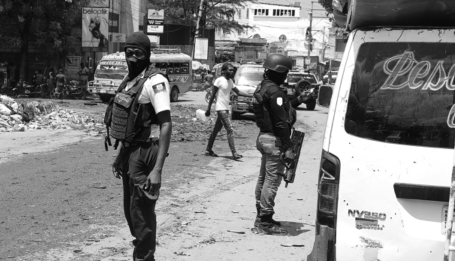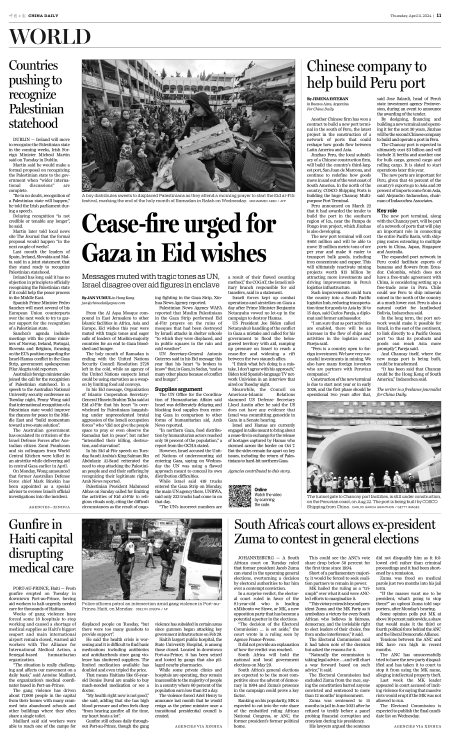
Police officers patrol an intersection amid gang violence in Port-au-Prince, Haiti, on Monday.
PORT-AU-PRINCE, Haiti — Fresh gunfire erupted on Tuesday in downtown Port-au-Prince, forcing aid workers to halt urgently needed care for thousands of Haitians.
Weeks of gang violence have forced some 18 hospitals to stop working and caused a shortage of medical supplies as Haiti's biggest seaport and main international airport remain closed, warned aid workers with The Alliance for International Medical Action, a Senegal-based humanitarian organization.
"The situation is really challenging and affects our movement on a daily basis," said Antoine Maillard, the organization's medical coordinator based in Port-au-Prince.
The gang violence has driven about 17,000 people in the capital from their homes with many crammed into abandoned schools and other buildings where they often share a single toilet.
Maillard said aid workers were able to reach one of the camps for displaced people on Tuesday, "but there were too many gunshots to provide support".
He said the health crisis is worsening and it is difficult to find basic medications including antibiotics and antidiarrheals since gang violence has shuttered suppliers. The limited medication available has doubled and even tripled the price.
That means Haitians like 65-year-old Denise Duval are unable to buy much-needed medication or see a doctor.
"My health right now is not good," she said, adding that she has high blood pressure and often feels dizzy "from hearing gunfire all the time, my heart beats a lot".
Gunfire still echoes daily throughout Port-au-Prince, though the gang violence has subsided in certain areas since gunmen began attacking key government infrastructure on Feb 29.
Haiti's largest public hospital, the State University Hospital, is among those closed. Located in downtown Port-au-Prince, it has been seized and looted by gangs that also pillaged nearby pharmacies.
While some private clinics and hospitals are operating, they remain inaccessible to the majority of people in a country where 60 percent of the population earn less than $2 a day.
The violence forced Ariel Henry to announce last month that he would resign as the prime minister once a transitional presidential council is created.

